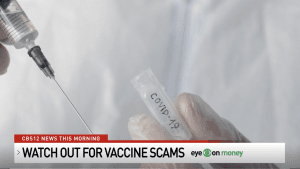We’ve all heard of cases in the news, or on an episode of Law & Order, where a person is kidnapped and held for ransom. Someone wants money before they will return the person. Now, it’s happening with computer files as well. Hackers are getting into computers, planting viruses that render the files on your computer virtually useless, and demanding money to unlock your files so they are usable again. It’s called ransomware, and it’s just the latest in the countless scams that can wreak havoc on your business. Don’t fall prey to it.
Here’s how it works: You get an email with an attachment that looks like something interesting that you may want to read. But the email hasn’t come from a source you know or trust. If you open the email, it could very well plant a virus in your system. And then you’ll get the notification that to unencrypt your files, you’ll have to pay, usually through some crazy scheme like wiring money or buying a product, as ransom to get your files back to normal.
Another instance: you’re browsing for something, like a pretty beach scene to put up as your computer wallpaper. You’ll find one you like and click to download it, only to have the same problem.
Sometimes hackers may break into your system in one of these ways just to prove that they can, and then demand money to avoid an attack. Or they may do something that will embarrass you, like post adult content on your business website, to get you to pay quickly.
Ransomware attacks are equal opportunity—neither PCs nor Macs are safe. Therefore, you need to be very careful about what you open. If you don’t recognize the incoming address on a piece of email, don’t open it! In addition, if an email is masked, meaning you can’t tell who it is from, don’t open that either. If it turns out you delete something that you should have kept, the sender will reach out to you via phone or regular mail eventually. Better to delete something you need than open something you don’t need that will give you the huge headache of a computer disaster.
The good news is that you don’t need to install any special products to protect your computers from these issues. Just be sure that you have a firewall in place, you are using the most updated anti-virus and anti-spyware software, and you have a pop-up blocker. Also, watch what you download—software that doesn’t come from a trusted source can be the thing that brings your system down.
The key is awareness. Don’t be in such a rush that you don’t pay close enough attention to what you’re doing. That’s when you might hit accept when you should have hit delete. And if you’re not sure if something is safe, stop what you’re doing and ask someone who knows.
If you have any questions about ransomware, contact FITECH today at (212) 223-TECH (8324), email info@fitechllc.com or visit www.fitechllc.com.



